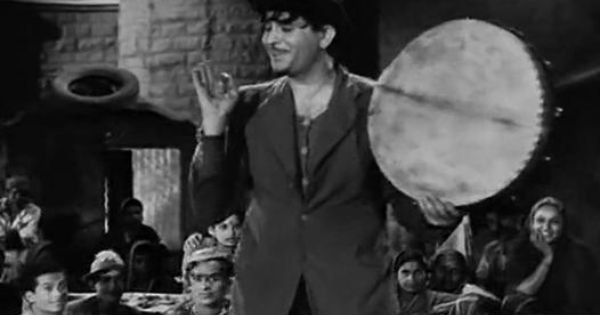
The Indian Hindi cinema world cannot be imagined without songs and dance sequences. Film songs serve a variety of purposes. They are put at thoughtful intervals all through the story; they make a more telling statement than only dialogues. They are both entertaining and enlightening. Many a hit songs, penned by legendary poets and lyricists, have contributed to a film’s box office revenue. This post is about some of the most famous poets in the world of Hindi cinema. You can hear a romantic, sad, bhaktirasa (devotional), patriotic, bravery, lonely, laughter, compassion, fighting all sorts of songs. The songs come in form of cabarets, qawali, bhajan, kirtan, ghazal, disco, dance and romantic songs. Urdu played a crucial role in the growth and development of the Bollywood, especially adding rhyme and lyricism to the Hindi numbers. The most famous poets of Bollywood have penned their poetries in Urdu/Hindi mix language. I hereby give an account of my favorite poets:
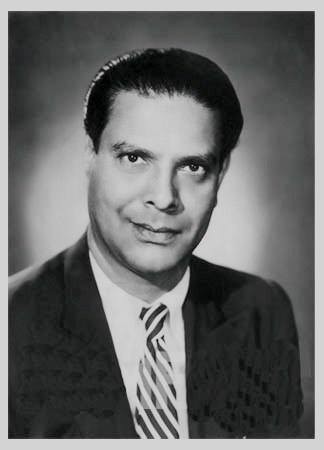
Shakeel Badayuni (1916 – 1970)
Shakeel Badayuni
He was an accomplished lyricist of the 1950s and 60s, Shakeel started participating in inter-college and inter-universities Mushairas when has studying in Aligarh Muslim University, and won frequently. He moved to Mumbai in 1944 with the ambition to write songs for films. He met producer A. R. Kardar and music composer Naushad, who signed him up for Kardar’s Dard (1947). The songs of Dard proved to be very successful especially Uma Devi’s (Tuntun) ‘Afsana Likh Rahi Hoon Dile Beqrar Ka’. Shakeel wrote for more than 90 films and most of his films had music composed by Naushad. Together he and Naushad became one of the most sought after composer/lyricst duos in the industry. Although Badayuni worked most extensively with Naushad, he also collaborated with Ravi and Hemant Kumar to give many great hits.
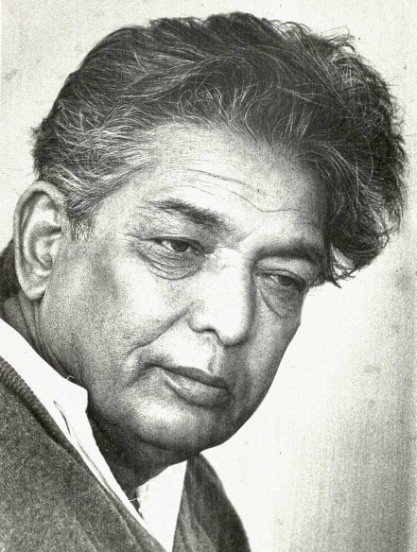
Kaifi Azmi (1914 – 2002)
Kaifi Azmi
The renowned Urdu poet, Kaifi Azmi, like most of the Urdu poets, began as a ghazal singer. His stint in films includes working as lyricist and writer. His greatest feast as a writer-cum-poet was Chetan Anand’s Heer Ranjha (1970) wherein the entire dialogue of the film was in verse. It was a tremendous achievement and the first and the only one of its kind in Hindi cinema. Though Azmi belonged to a landed family, he was drawn, from an early age, to communism. His family wanted him to become a cleric, and he was enrolled in a seminary. However, he gave up formal education in the wake of the Quit India movement and joined the Communist Party of India. He moved to Bombay in 1943 to work as a trade unionist and write for the party’s Urdu papers, including Qaumi Jung (“People’s War”). He also published his first volume of poetry, Jhankar, that year. During this period he became closely associated with the Progressive Writers Association and the Indian Peoples’ Theatre Association, and he even acted in plays with other leftists such as the actor Balraj Sahni (1913–73).
Tum Itna jo muskara rahe ho……….Movie: Arth (1983), Singer: Jagjt Singh, Music Director: Jagjit Singh
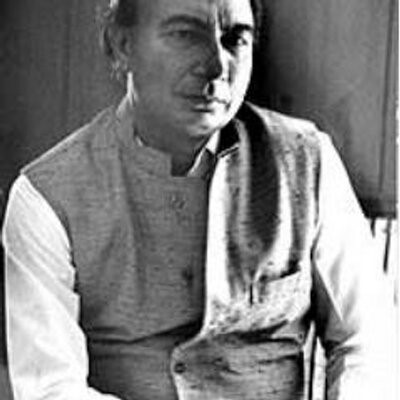
Sahir Ludhianvi
The famous Urdu poet, Sahir Ludhianvi, debuted in films with his lyrics for Naujawan (1951). His first major success came the same year with Guru Dutt’s directorial debut Baazi, again pairing him with composer S. D. Burman. Together they created some of the most popular songs ever: ‘Yeh Raat Yeh Chandni Phir Kahan (Jaal), ‘Jayen to jayen Kahan’ (Taxi Driver). Sahir Ludhianvi’s poetries were accepted in its purest form; he never had to make changes in his poetries to suit the situation as demanded in the films. Instead, producers and composers adapted their requirements to his poetry. His songs in films like Pyaasa, Naya Daur and Phir Subah Hogi have attained the status of classics. Sahir was a sensitive man because of his troubled childhood and his troubled love relationships. He didn’t marry in his life. He rose as people’s poet through the golden era of Hindi film music, the 1950s and 1960s. One of my favorite songs penned by Sahirsab is “Mein zindagi ka sath nibhat chal gaya….” It has become my mantra of life! In clear, modest words and a playful music, the song conveys the secret to life and happiness; it so well picturized on evergreen Dev Anand.
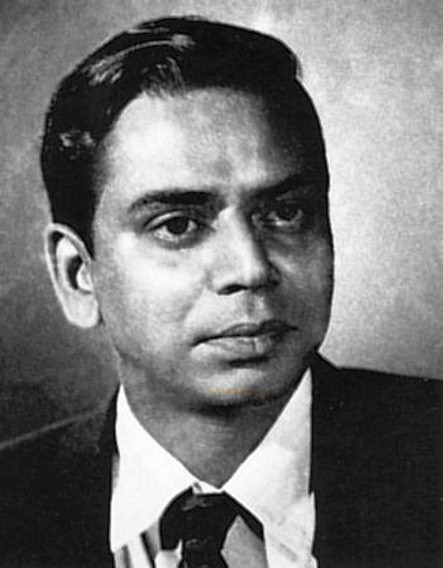
Shailendra
One of the most popular lyricists of the golden era of Hindi cinema, Shailendra used almost all his literary genius for writing great songs which were poems in themselves. Shailendra spent his childhood in Mathura (U. P.). His father hailed from Bihar. This U.P.-Bihar cultural influence was to show later in his folk-style film songs – ‘Chadh Gayo Papi Bichhua’, Sajanwa Bairi Ho Gaye Hamar’ and ‘Abke Baras Bhaij Bhaiya Ko Bab’. Poetry was his first love and his poetic zeal and passion appealed to Raj Kapoor who was in the audience of a stage program where Shailendra recited his poems. Raj Kapoor immediately contacted Shailendra for his next film Barsaat. From then onwards he became the permanent member of the famous R. K. musical quartet – Shankar-Jaikishan, Hasrat Jaipuri and Shailendra. This group of talented artistes remained together for years and made some of the greatest songs. Raj Kapoor and Shailendra shared a fantastic camaraderie and a highly productive working relationship. But above all, they were friends. Raj Kapoor fondly referred to Shailendra as “Pushkin” (name of one of the famous Russian poet) or “Kabiraj”. In fact, the legendary actor-director was often at the latter’s house. Raj Kapoor and Shailendra worked together on several movies, around 21 films in total.
Dil ka haal sune dilwala, seedhi si baat na mirch masala, Movie Shree 420(1955) Singer: Manna De, Music Director: Shankar- Jaikishan
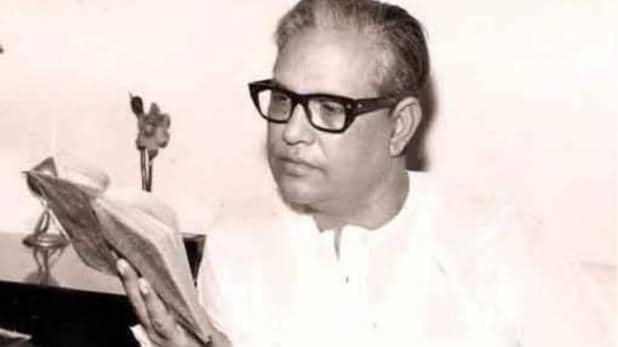
Majrooh Sultanpuri (1919-2000)
Majrooh
Majrooh was an established Hakim, but, he used to write and recite ghazals at a mushaira in Sultanpur. One of his ghazals became famous with the audience and Majrooh saw his calling. In 1945 he visited Bombay where the renowned poet Jigar Muradabadi introduced him to producer A. R. Kardar and composer Naushad, who put the young writer to test. Naushad gave Majrooh a tune and asked him to write something in the same meter, and Majrooh wrote ‘Jab Usne Gesu Bikhraye, Badal Aya Jhoom Ke’. Naushad liked what Majrooh wrote and gave him a break as lyricist in Kardar’s film Shahjehan (1946). The songs of the film became immensely popular. Majrooh went on to write lyrics for hit movies in the 1950s and 60s. It was Majrooh’s versatility that producers swore by, for Majrooh could captivate listeners with his every work. Majrooh won Filmfare award for Dosti. He wrote over 4000 songs and his success rate in terms of popularity of his songs was 95 percent.
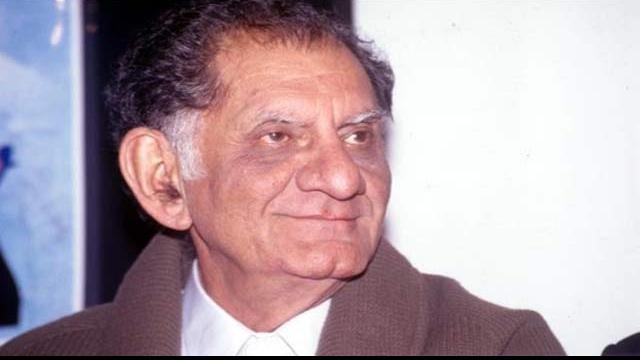
Anand Bakshi
He was an avid movie buff right from childhood, Anand Bakshi’s dream to become a big shot in Bollywood was realized with a chance meeting with producer Bhagwan who offered him to write lyrics for his film Bada Admi. A few years later Jab Jab Phool Khilen released and the song ‘Pardesion Se Na Ankhian Milana’ proved to be a big hit. His career took a big leap forward when the songs of Haryali Aur Raasta became chartbusters. The film had many hit songs including the timeless number ‘Bol Meri Taqdeer Mein Kya Hei’. It was Milan (1967) that finally took Bakshi to the top. Songs like ‘Sawan Ka Mhina’, ‘Bol Gori Bol’, and Ram Kare Aisa Ho Jaye’ and ‘Hum Tum Geet Yug Yug Geet Milan Ke Gayen’ were hummed in every nook and corner of the country. He never looked back after Milan. Anand Baxi’s association with Lakshmikant-Pyarelal and R. D. Burman gave some of the most beautiful renditions in movies like Farz, Do Raaste, Bobby, Amar Akbar Anthony, Ek Duje Ke Liye, Kati Patang, Amar Prem, Hare Rama Hare Krishna, to name a few. His work in particularly Amar Prem stands out among his best – ‘Chingari Koi Bhadke’, ‘Kuch to Log Kahenge’ and ‘Raina Beet Jaye’. Anand Bakshi won Filmfare awards for some of his songs.
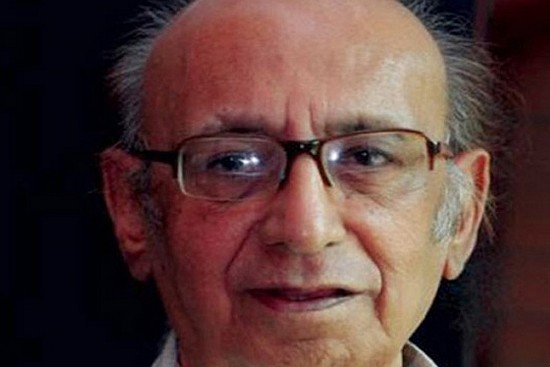
Nida Fazli
He was a prominent Indian Hindi and Urdu poet, lyricist and dialogue writer. He was awarded the Padma Shri in 2013 by the government of India for his contribution to literature. While still young, Fazli was passing by a Hindu temple where a singer was singing bhajan by Surdas about Radha sharing her sorrow with her maids at being separated from her beloved Krishna. Nida got so inspired by Surdas’s poetry that he began studying Hindu mythology poetries. He got inspired by Meera’s bhjanas, Kabir’s dohas, Mir, Ghalib. He also widened his knowledge of poetry by studying T.S. Eliot, Gogol, Anton Chekhov etc. He became known among readers and ghazal singers for his elegant presentation and exclusive use of colloquial language for ghazals, dohaas and nazms. I am a big fan of Nida Fazli’s poetries.
I give hereby a beautiful, haunting song composed to perfection by the great composer Khayyam; this remains an example of the poet’s life philosophy. The song talks about endless human desire yet the reality that nobody’s desires are fulfilled in this lifetime. Singer Bhupinder Singh recollects that when he sat down to read the song for the first time, he had tears in his eyes, he was filled with emotion. Nida Fazlisab seemed to have poured far too much heart and reality into it, says the singer. Bhupinder said that it wasn’t just another ghazal for him.
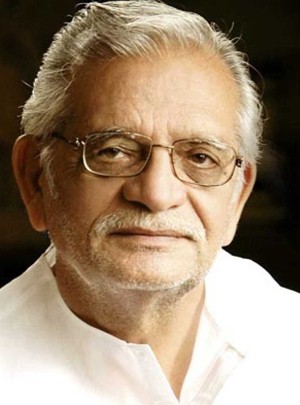
Gulzar
His real name is Sampoorna Singh Kalra, he Is one of the most versatile poet, lyricist, producer, director. Gulzar is one of those sensitive people whose work is laced up with lyrical but psychologically adept examination of human sensibilities. He used to work as a touch-up guy for paints for cars in garage. His first break as lyricist came when he wrote ‘Mora Gora Ang Lai Lae’ for Bimal Roy’s Bandini (1963). The song was a big hit and gave Gulzar the opportunity of his lifetime writing hit songs for films that include Anand, Namak Haram, Khamoshi, Safar, Andhi, Mausam, Lekin, Machis, Masoom, Rudali, Thodi Si Bewafai, Sadma, Ghulam, Dil Se, Satya and many more musical hits. Gulzar has won Filmfare awards for Best Lyricist seven times: Do Diwane Shahar Mein (Gharonda-1977), Aanewala Pal Jaanewala Hai (Golmaal-1970) and few other numbers.
Mora gora rang laile …Movie: Bandini (1963, Singer: Lata Mangeshkar, Music Director: S.D.Burman
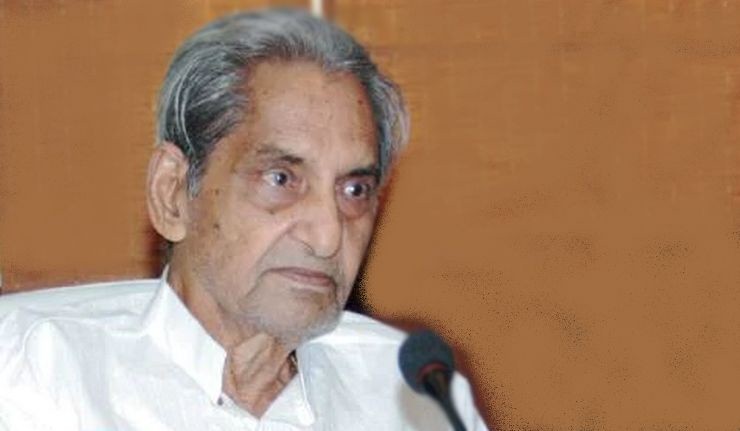
Gopaldas Neeraj
He was popularly known as Neeraj was known for his intense poetries. He wrote under the pen name “Neeraj”. He was Padma Shri and Padma Bhushan. Besides writing, he earned his living by working as a Professor of Hindi literature in Dharma Samaj College, Aligarh; he even became Chancellor of Mangalyatan University for a while. He wrote equally well in Hindi and Urdu.
He wrote songs for several Hindi films and was proficient in both Hindi and Urdu. In a television interview, Neeraj called himself an unlucky poet who had to concentrate on the poetry form instead of writing songs for films. His career as a film lyricist ended when he became miserable by the deaths of some of the film music directors with whom he had worked. He noted in particular the deaths of Jaikishan of the music duo Shankar-Jaikishan and S.D.Burman for both of whom he had written highly popular film songs.
Likhe jo khat tuze…….Kanyadaan, Movie:Kanyadaan (1968), Singer: Mohammed Rafi, Music Director: shankar-Jaikishan
Poets are usually sensitive people. I mean that they are more aware of emotions. They can sense wide variety of emotions than just being sad and happy. Little thing around can them act as stimulant to give rise to intense emotions in them. All of the poets I have mentioned in this post made 1950s and 1960s a golden era.












































